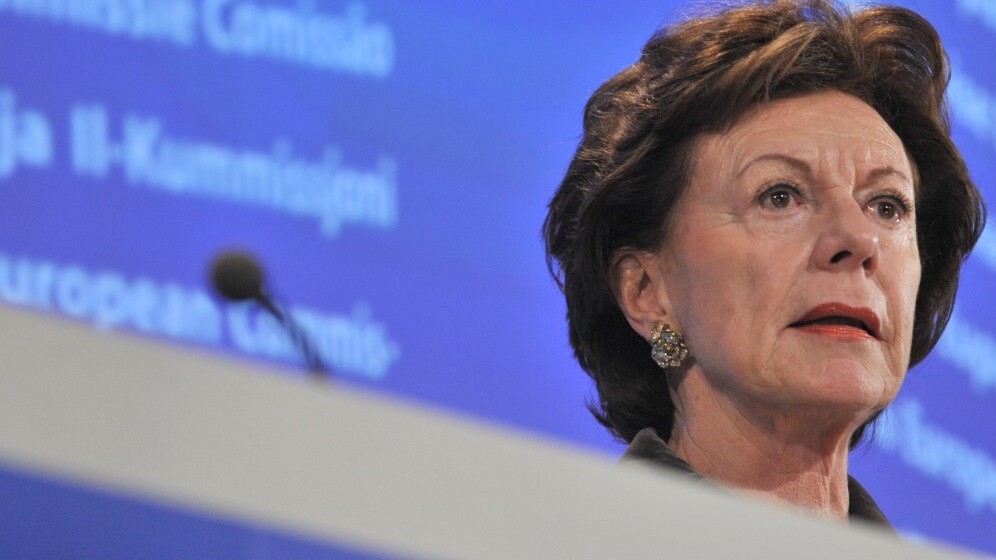
Neelie Kroes, vice president of the European Commission, has called for more spectrum to be made available for WiFi use following the discovery that 71 percent of all WiFi traffic in Europe takes place via a WiFi connection.
The study, released today, found that the significant majority of smartphones and tablet users were connecting to a WiFi network to carry out most of their online tasks, largely due to the expense of using mobile data services as a replacement.
“WiFi is a huge success. It’s a win for everybody involved. I will make sure the European Commission helps to spread use of WiFi through extra spectrum and lighter regulation,” Kroes said.
“Systems where you share your Wi-Fi network with others are a great example of how we can crowd-source a better internet for everyone. Everyone in Europe should be able to benefit from internet when they are away from home and work,” she added.
While mobile data access has its place, and certainly comes in handy when WiFi isn’t available, the cost of buying the spectrum required to operate the services is significant, as a result, the cost for the end-user is even more significant – particularly if you try and use data services outside of your home country.
The situation within Europe is, however, improving with measures such as caps on how much operators can charge per MB and plans to decouple data usage from texts and calling while abroad.
As WiFi plays such an essential part in keeping mobile data flowing while out and about, Kroes proposed several measures to ensure it could keep up with demand, which is predicted to increase to 78 percent of mobile data by 2016, including:
- To make spectrum from 5150 MHz to 5925 MHz available globally for Wi Fi
- To continue making the 2.6 GHz and the 3.5 GHz bands fully available for mobile use and to consult on future licensing options for 3.5 GHz and other potential new licensed mobile frequency bands; and
- To reduce the administrative burden on the deployment of off-load services and networks in public locations.
While Kroes’ proposals are clearly sound, an effective global regulator (as the EC is in Europe) that oversaw pricing of mobile data would encourage more people to use data services on their devices rather than needing to connect to WiFi hotspots on an ad-hoc basis, which often incurs charges of its own.
Featured Image Credit – AFP/Getty Images
Get the TNW newsletter
Get the most important tech news in your inbox each week.





